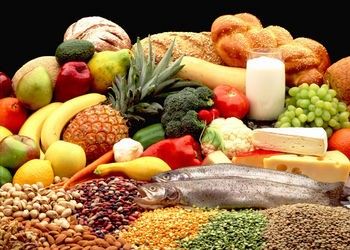Last menstrual period date:
No woman likes gaining weight; however, a healthy pregnancy will add anywhere between twenty to thirty-five pounds. A great deal of this pregnancy weight leaves your body when your baby is born—you’ll see an immediate weight reduction as your little one will likely weigh between six and ten pounds. Several more pounds will disappear with the amniotic fluid and placenta as well. However if you’re pregnant and underweight, you may gain as much as forty pounds. 
During the first trimester, it’s likely that you’ll notice little weight gain. In fact, many women experience a small weight loss because of morning sickness. Both of these instances are normal. Because your baby is so small, his or her needs match his or her size. If you’re already eating a diet balanced in whole grains, fruits and vegetables, and lean proteins then your baby is getting almost everything he or she needs. It’s a good idea to supplement with folic acid and DHA to support brain and nervous system health and development throughout your pregnancy, but it is especially important in the first trimester.
Other women may notice a small increase in weight during the first three months and this is often due to fluid retention. And towards the end of the first trimester you’ll likely be hungrier and hungry for more specific foods. As your baby continues to grow, his or her nutritional demands become greater, and you’ll begin to add a few pounds.
You should see a sharp increase in weight during the second trimester. The second stage of your pregnancy is when your baby really begins to grow, and because of this growth you should experience a steady weight gain. A good guideline during the second trimester is to add 350-400 additional calories a day above the daily recommended caloric intake for your activity level. Several well-planned snacks can help you meet this goal. If you fall below recommended standards your OB or midwife will likely recommend increasing your caloric intake with nutritional yet calorie-dense foods. Smoothies combining Greek yogurt, nuts, spinach, mango, banana, and peanut butter are a great option as is a comforting chili packed with beans, meat, veggies, cheese, and topped with avocados. If you’re underweight going into the second trimester your doctor will likely recommend several go-to foods to ensure that your baby has the energy and nutrients he or she needs to continue developing at a healthy pace.
Weight gain will continue during the third trimester. Your additional caloric intake should increase to 450-500 during the last three months—your baby has a lot to accomplish during this timeframe! In addition to your growing baby you’ll likely experience more water retention; the good news is that this weight will quickly dissipate after giving birth. It’s important to continue eating nutrient-rich and calorically-dense foods as your baby is continuing to grow. If the mother is underweight, it is likely the baby will be underweight as well. Babies that are too small may not be strong enough to complete a natural birth, and are more likely to suffer from conditions such as diabetes as adults.
Following your doctor of midwife’s advice regarding your weight is in the best interest of your baby. An expecting mother who is underweight faces an increased risk of preterm birth. And since many preterm births are accompanied by complications, the safer route is to work on providing yourself and your baby with the nourishment each of you needs over the next nine months. Don’t dread your pregnancy weight gain week by week; wear it as a badge of honor. Remind yourself that you’re making good choices for your little one by gaining this weight. And with a little exercise, it will disappear by the time your little one celebrates his or her first birthday.
My content




